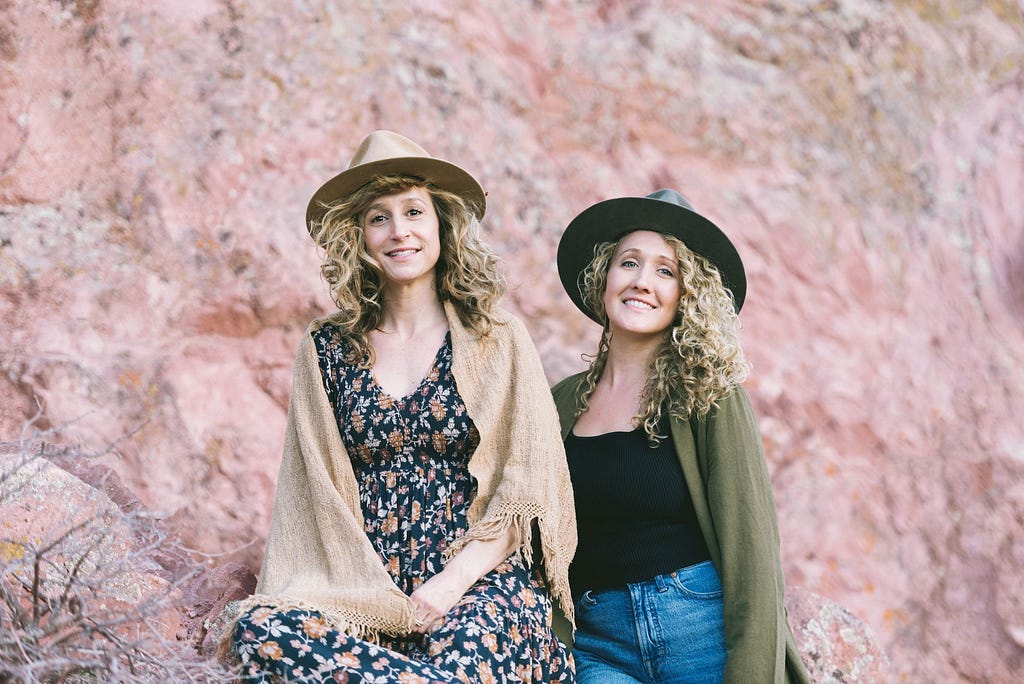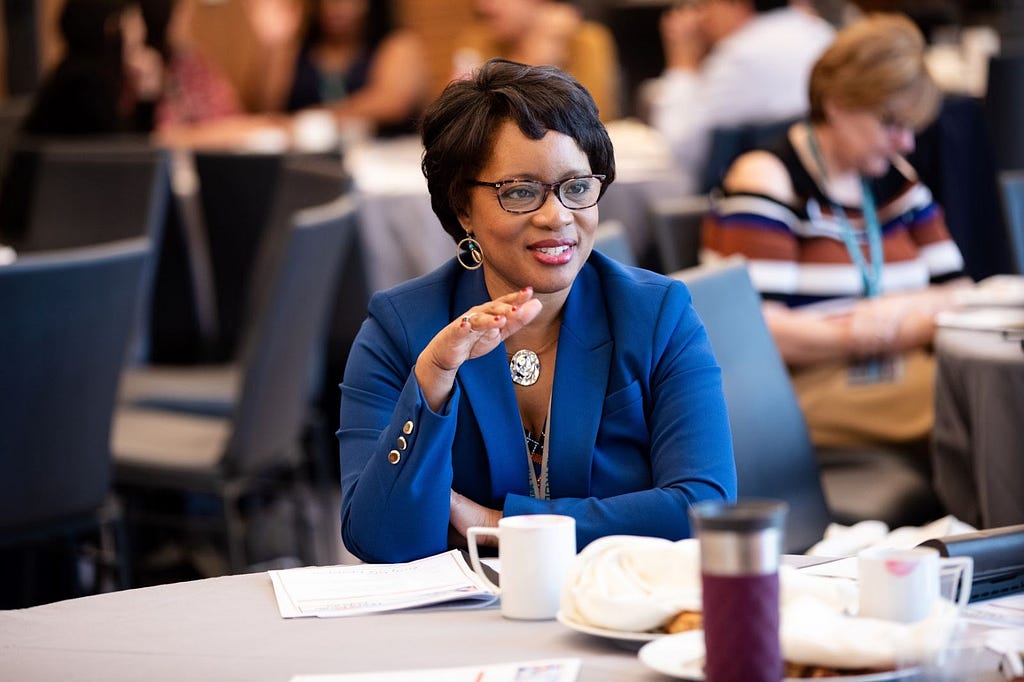Female Disruptors: Chelsea Rana of Chelsea Rana Art Advisory On The Three Things You Need To Shake Up Your Industry

I’ve been really blessed to have had a number of mentors in my life. I spent years living in Europe and Asia which allowed me to cultivate deep relationships with different types of people from all around the world. Each has taught me something different, whether about art, or business, or even just life, and I feel that I carry a little bit of each of their philosophies with me. The most impactful advice that I’ve received is that there is no need to rush into things. By taking the time to be truly thoughtful before acting, I will always be happy with the end result.
As a part of our series about women who are shaking things up in their industry, I had the pleasure of interviewing Chelsea Rana.
In her capacity as an Art Advisor, Chelsea acts as a natural catalyst between the collector and Gallery. In the community’s best interest, it is their function to provide maxim exposure for the artist but also uphold its integrity for long term ownership, rather than quick flips — a current trend plaguing the veracity of the art industry. Remaining a trusted source to both galleries and collectors alike is essential business strategy for CRAA. Upholding genuine relationships give Chelsea the insider edge that her clients need to protect their investment and uphold the value in each piece.
In celebration of the launch of CRAA and a culmination in her art advisory journey, Chelsea will soon embark on another cross-cultural visual endeavor entitled L.A.: Views, with international partner Maki Gallery. Opening in Omotesando, Japan on December 4th, 2020, the L.A.: Views show will feature Los Angeles based Mid-Career and Early Bluechip artists. Running until January 16th, the inaugural show focuses on Angelenos that Rana is drawn to in a cultivating artist.
Innovation is key is in her artist discover. Rana seeks out artists who create new techniques or builds upon the existing. She looks for new ways that they express their subjects. Her ability to recognize innovation is due only to her in depth of knowledge in the Masters. Following the Tokyo exhibition with Maki’s own collection featuring L.A. based artist Mungo Thomson as one of the first shows outside of Japanese artists, this show featuring the likes of Sayre Gomez’s modern art and Gabriella Sanchez’ graphic and Latinx typography and double entendres at Maki’s second location. It will be only the first non post war avant-garde Japanese shows held in the 2003 brand gallery.
This distinct honor of bringing in American art prior to auction houses, which inflates value making in difficult for Japanese patrons to acquire, gives CRAA the trusted responsibility to help shape the contemporary art scene in Japan. It is Chelsea Rana Art Advisory eye, expertise and ultimately experiences, of whom the show exhibits, will define the representation of Los Angeles work as it appears in Japanese Culture.
Thank you so much for doing this with us! Before we dig in, our readers would like to get to know you a bit more. Can you tell us a bit about your “backstory”? What led you to this particular career path?
Thank you for having me! I am the founder of Chelsea Rana Art Advisory. Prior to founding my own company, I worked in galleries and then later co-founded an advisory firm. I developed my passion for art long before I was fortunate to get my start working in galleries. I had an opportunity to live in Europe and Asia for an extended period of time and that opened my eyes and ears to the diversity of art. Throughout my career path, I’ve always held onto my basic principles, which is working with kindness, transparency, empathy and honesty. My clients know that I work to get the best results for them, rather than just making a sale, which has translated into long-lasting relationships.
Can you tell our readers what it is about the work you’re doing that’s disruptive?
The exhibition that I recently curated, L.A.: Views, which is currently on view at MAKI Gallery in Tokyo Japan, is a group show comprised of paintings and sculptures by Los Angeles-based artists. Many of the artists in the show are early to mid-career so Japanese collectors are getting early exposure to these artists that they wouldn’t have otherwise. Japanese collectors typically learn about Western artists from auction houses, and by the time an artist has work in an auction, their prices are already quite high which excludes many would-be-collectors. MAKI Gallery is the perfect gallery for this exhibition. I say this not only have I known and worked with the founders for quite some time, but also because MAKI Gallery is very forward-thinking and highly-esteemed, with collectors looking to MAKI Gallery for early talent.
We all need a little help along the journey. Who have been some of your mentors? Can you share a story about how they made an impact?
I’ve been really blessed to have had a number of mentors in my life. I spent years living in Europe and Asia which allowed me to cultivate deep relationships with different types of people from all around the world. Each has taught me something different, whether about art, or business, or even just life, and I feel that I carry a little bit of each of their philosophies with me. The most impactful advice that I’ve received is that there is no need to rush into things. By taking the time to be truly thoughtful before acting, I will always be happy with the end result.
In today’s parlance, being disruptive is usually a positive adjective. But is disrupting always good? When do we say the converse, that a system or structure has ‘withstood the test of time’? Can you articulate to our readers when disrupting an industry is positive, and when disrupting an industry is ‘not so positive’? Can you share some examples of what you mean?
Absolutely. An example of disruption being positive that relates back to my L.A.: Views exhibition at MAKI Gallery is that by bridging the gap between Tokyo and Los Angeles via an art exhibition making the world a little smaller. It’s a net positive result for everyone. The Japanese collectors are able to see, learn about, and collect artwork by talented artists that they otherwise wouldn’t have known about until much later in that artist’s career. Through this exposure, the artist is able to acquire new patrons which can lead to career-changing opportunities such as more recognition and inclusion in museums. With that being said, disruption can be negative when done thoughtlessly. Even though the goal of showing an artist’s work to a new market is to gain new collectors for that artist, we have to make sure that these new collectors have good intentions. In today’s speculative market, it’s more important than ever to take time with placements and make sure that the artworks enter collections where they will remain and be appreciated without being flipped.
We are sure you aren’t done. How are you going to shake things up next?
Even though L.A.: Views is still on view, I’m already thinking about curating another show. I also have a few more projects with MAKI Gallery in the works.
Can you please give us your favorite “Life Lesson Quote”? Can you share how that was relevant to you in your life?
“We need art to remind us why life is worth living. We need art to reawaken our sense of the wonder of being, to remind us of our freedom, and to highlight the things in our culture that enable us to withstand the dreaded visage of death.” By Ben Okri.
How can our readers follow you online?
http://www.chelsearanaartadvisory.com/
https://www.instagram.com/chelsea.petronko/
This was very inspiring. Thank you so much for joining us!
Female Disruptors: Chelsea Rana of Chelsea Rana Art Advisory On The Three Things You Need To Shake… was originally published in Authority Magazine on Medium, where people are continuing the conversation by highlighting and responding to this story.

















